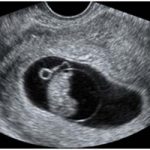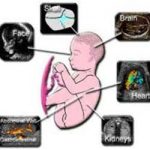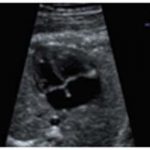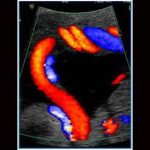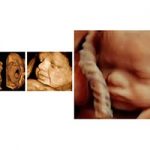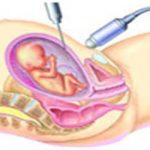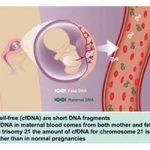Common minor problems during pregnancy – Remedies
During pregnancy, the body will go through an amazing journey to carry and deliver the baby and it is not unusual to experience some minor problems, aches and pains along the way. There is usually nothing to worry about these.
Nausea and Morning sickness during Pregnancy
Nausea and vomiting is very common in the first 3 months of pregnancy. It usually resolves spontaneously by around 14 weeks and this is not associated with poor pregnancy outcome.
The exact reason for this condition is unknown but hormonal changes in the early pregnancy are probably one of the major cause.
Remedies for morning sickness
✓ If you feel sick first thing in the morning, give yourself time to getting out of bed.
✓ Get plenty of rest and sleep whenever you can.Feeling tired can make the sickness worse.
✓ Eat small amounts of food often rather than several large meals, but don’t stop eating.
✓ Drink plenty of fluids.
✓ Avoid foods and smells that make you feel worse. It helps if someone else can cook.
✓ Try to avoid rich, spicy, acidic or fried foods, and eat less fat in general.
✓ Keep snacks on hand-dry biscuits, rusks or bananas etc.
✓ Give yourself time to relax!
✓ Keep your mind occupied.
✓ Wear comfortable clothes. Tight waistbands can make you feel worse.
✓ Smell of a cut lemon, ginger or put a couple of drops of peppermint oil on a piece of tissue or your handkerchief and sniff at it now and then.
When to get help?
If you’re vomiting all the time and cannot keep anything down then this may cause dehydration (this condition is also known as hyperemesis gravidarum). In this situation consult your doctor. You may have to stay in the hospital to receive intravenous hydration with fluids, glucose and electrolytes.
Constipation
Constipation is common during pregnancy and it affects nearly half of pregnant women.It is due to hormonal changes during pregnancy and usually worse in first half of pregnancy.
How to avoid constipation:
✓ Eat foods that are high in fibre such as wholegrain cereals, vegetables, fruits and pulses such as beans and lentils.
✓ Drink plenty of fluids
✓ Mild to moderate regular exercise is good to keep muscles toned.
✓ Some times iron supplements can cause constipation and change to a different type may be necessary.
Backache
During pregnancy as the baby grows, the hallow in the lower back becomes more pronounced and this can cause backache. Also because of hormonal changes the ligaments become softer and stretch. This can put extra strain on the joints of the lower back and pelvis which can also cause backache. Many women experience backaches during 2nd and 3rd trimesters.
How to avoid backache
✓ pay attention to posture
✓ avoid lifting heavy objects
✓ wear flat shoes so that your wait is evenly distributed.
✓ sit with your back straight and well supported
✓ make sure you get enough rest-particularly latter half of pregnancy
✓ too soft mattress can cause backache, instead use firm mattress.
✓ back message, safe painkiller tablet such as paracetamol, support belt can sometimes help to ease the pain.
✓ the physiotherapist able to give some advice and may suggest some exercises to treat backache.
Cramp
Cramp is a sudden, sharp pain, usually occurs in calf muscles or feet. It is most commonly occurs in night.
Remedies:
✓ when cramp occurs, pull your toes hard up towards your ankle or rub the muscle hard
✓ regular, gentle exercise particularly ankle and leg movements, will improve the circulation and may prevent cramps.
Indigestion and heartburn
It is caused by hormonal changes as well as during late pregnancy the pressure on the stomach from a large uterus, forcing stomach acid to flow up into the food pipe. The valve between stomach and food pipe (oesophagus) is relaxes during pregnancy and because of this stomach acid passes into the food pipe leading to strong burning pain in the chest (heart burn)
✓ Try eating smaller meals more often
✓ Avoid food which affect you, e.g. fried or highly spiced food.
✓ Heartburn worsens by lying flat. Sleep propped up with pillow support.
✓ Drink a glass of milk.
✓ If severe consult your doctor – antacid and medications to reduce stomach acid production will help to relieve the symptoms.
Urinary incontinence, increased frequency
This is a common problem and may affect during and after pregnancy. Sometimes during pregnancy it may be difficult to prevent a urine leak during cough, sneeze or laugh, or just getting up from sitting position. This may be temporary; because the pelvic floor muscles relax to prepare for delivery. This condition usually resolves after delivery. Pelvic floor exercises after delivery will help.
Needing to pass urine often usually start early in pregnancy. This becomes better in the mid pregnancy but in the later pregnancy this reappears as a result of pressure from the bay’s head.
Aches/pains and Pelvic joint pain
Minor aches (pains) and discomforts most common during pregnancy and it is because of growing uterus causing stretching of ligaments. This usually worsens as the pregnancy advances. Nothing specific needs to be done for this. Rest and simple analgesia might sometimes help.
Pelvic girdle pain or symphysis pubis dysfunction is less common and this can be mild or sometimes severe. This causes pain in the groin, pubic area and or thigs.The pain increases on walking, going up stairs etc.Anagesia, physiotherapy and pelvic support may be needed.
Piles/Haemorrhoids
Piles are dilated rectal veins that can protrude through the anus and this may cause burning sensation, discomfort and bleeding. They are caused by increased pressure from the growing uterus and hormonal changes. Try to avoid constipation by eating sufficient fibre and increase your fluid intake. Medication to prevent irritation and muscle spasm will help. This condition usually resolves after delivery.
Skin discolorations/stretch marks.
Skin colour may darken little, either in patches or all over. A dark line from belly button (umbilicus) down to pubic region may develop. These changes will gradually fade and less noticeable after the baby is born.
Skin of the abdomen and some times over buttocks, breasts, upper thighs are stretched and this causes discoloration of skin and itching. It is doubtful whether oils or creams help to prevent stretch marks. After the delivery the marks should gradually pale and less noticeable.
Swollen feet
Ankles and feet often swell a little in pregnancy because of water retention during pregnancy. This may increase towards end of pregnancy or after standing. This condition is better in early morning after overnight rest. Don’t stand for a long time, try to sit down regularly and raise your feet up. But it is important to remember swelling may be a sign of high blood pressure problem during pregnancy.
Other common conditions
✓ Feeling faint is sometimes common-if you feel faint while lying on your back, turn on to side. But if this occurs persistently it is important to rule out other causes (anaemia, heart problems etc.).
✓ Feeling hot is normal and this is due to increase in blood supply to the skin. Wear loose clothing made of natural fibres. Keep your room clean. Wash frequently to help you to feel fresh.
✓ Mild itching is common. If it is severe or associated with rash consult your doctor.
✓ Leaking from nipples is normal-consult your doctor if it is blood stained
✓ Hair growth likely to increase during pregnancy. After delivery, it may seem as if you are losing a lot of hair. In fact, you are simply losing the extra hair that you grew during pregnancy!
✓ The gums may become swollen and bleeds easily. Use soft tooth brush and eat plenty of fruits. Gums become normal after delivery.
✓ An increase in vaginal discharge is common due to change in hormone levels. If it is associated with itch, soreness or offensive smell-there may be an infection and you should consult your doctor for treatment.
✓ The veins in the legs may be swollen (varicose veins).Compression stockings can improve.
✓ Minor nose bleeds are common, again due to hormonal changes. At the time of bleeding to stop bleeding – sit with your head forward, press the sides of your nose together between your thumb and forefinger, just below the bony part, for 10 minutes. If bleeding continues, seek medical advice.

